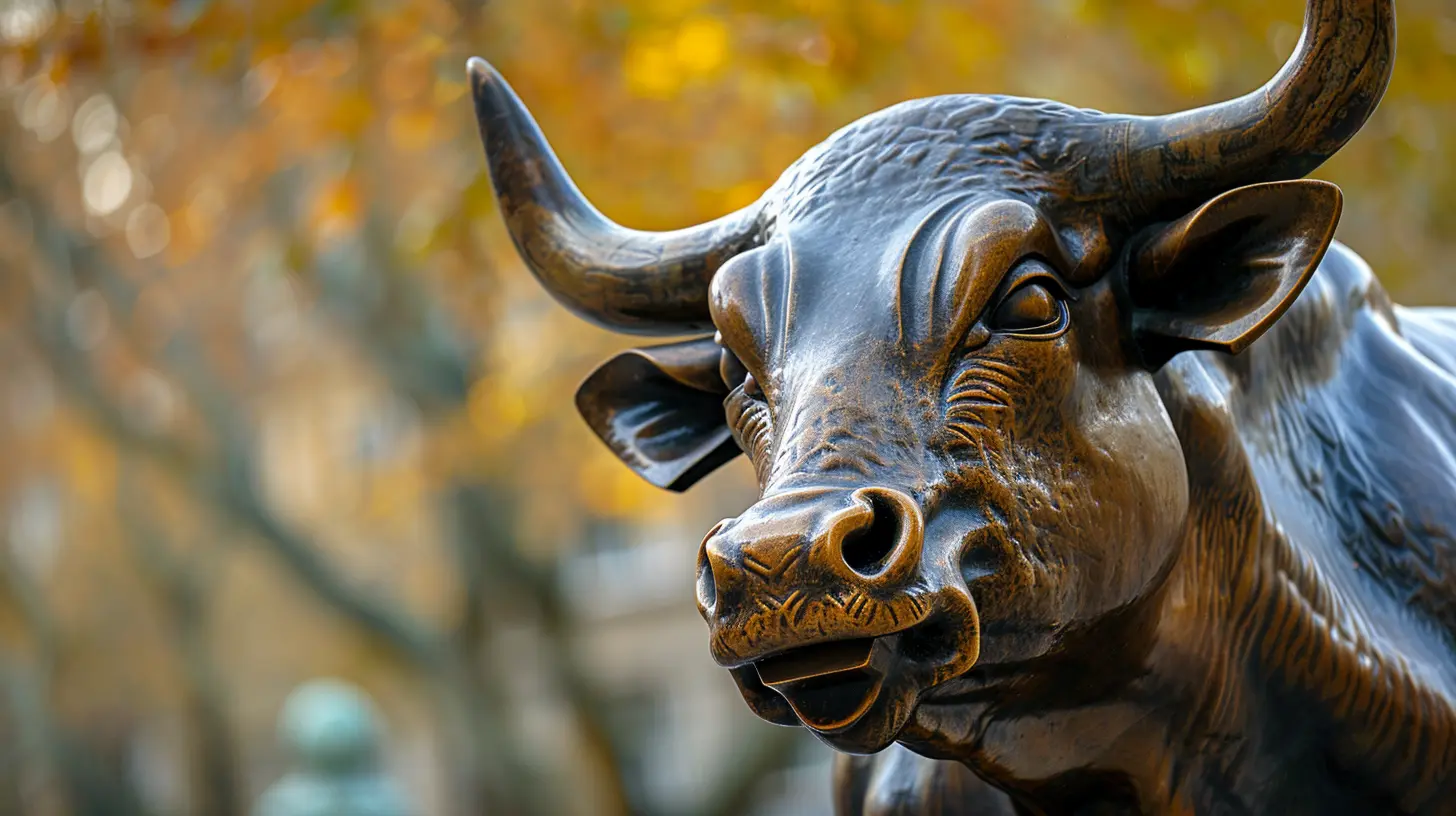The Role of Social Media Sentiment in Stock Price Movements
9 October 2025
The stock market has always been a bit of a rollercoaster, but in recent years, a new force has emerged that’s sending prices soaring—or crashing—at lightning speed. Enter social media sentiment.
Yes, you read that right! Social media, where we rant about bad customer service and share cat memes, is now influencing stock prices in ways we never imagined. Whether it’s Elon Musk tweeting about Dogecoin or Reddit’s r/WallStreetBets turning GameStop into a stock market legend, online chatter has become a major player in the world of finance.
So, how does social media sentiment impact stock prices? And can investors actually use it to their advantage? Let’s dive in! 
📊 What is Social Media Sentiment?
Before we get ahead of ourselves, let’s break it down. Social media sentiment refers to the general mood or emotion expressed by users regarding a particular topic, company, or stock.It’s a cocktail of opinions, emotions, and hype found across platforms like:
✔ Twitter – Where billionaires casually shift markets with a single tweet.
✔ Reddit – The birthplace of community-driven stock movements (GameStop, anyone?).
✔ Facebook & Instagram – Where brands build reputations (good or bad).
✔ YouTube & TikTok – Financial influencers spreading insights (and sometimes, misinformation).
By analyzing these platforms, investors can gauge whether market sentiment is bullish (optimistic) or bearish (pessimistic)—potentially influencing their investment decisions. 
🚀 How Social Media Moves Stock Prices
The stock market is fueled by supply and demand. If enough people believe a stock is valuable, demand skyrockets, and so does the price. Social media acts as a megaphone, amplifying trends and influencing investor behavior at jaw-dropping speeds.Let’s break down how this works:
1. Viral Hype Means Buying Frenzy
Remember when Tesla’s stock surged after Elon Musk added "#bitcoin" to his Twitter bio? That’s social media sentiment in action. A simple post can fuel FOMO (fear of missing out), pushing investors to buy rapidly, causing prices to surge.Brands and even lesser-known companies can experience massive gains overnight if they catch the right wave of online enthusiasm.
2. Panic Selling on Bad News
Social media doesn't just pump stocks up—it can bring them crashing down too! When negative news floats around, panic spreads like wildfire, leading to mass sell-offs. One bad tweet, an exposed scandal, or even false rumors can damage investor confidence and tank stock prices in no time.3. The Power of Online Communities
In early 2021, something unprecedented happened—Reddit traders banded together and sent GameStop (GME) “to the moon” 🌓. The stock, which was once struggling, skyrocketed as retail investors waged war against hedge funds betting against it.This wasn’t just a lucky break—it was a social media-driven movement. Investors who paid attention to Reddit discussions got in early and made massive gains.
4. Market Manipulation & Misinformation
Not all social media sentiment is organic. Some people intentionally spread misinformation to profit from stock price swings. This is often seen in pump-and-dump schemes, where influencers hype up a stock, push the price up, and then dump their shares, leaving unsuspecting investors with losses.This is why it’s crucial to be skeptical and verify information before making investment decisions. 
📢 Can You Use Social Media Sentiment to Predict Stock Movements?
Now for the million-dollar question: Can investors actually use social media sentiment to predict stock price movements?The short answer? Yes… but with caution.
Here’s how savvy investors leverage social media sentiment for smarter decisions:
✅ Social Listening Tools
Companies and traders use AI-powered tools like:📌 Twitter sentiment analysis – Scanning tweets for positive/negative stock mentions.
📌 Reddit trend tracking – Monitoring discussions on r/WallStreetBets and other forums.
📌 Google search trends – Checking if people are searching for a stock more than usual.
These tools help traders anticipate potential price swings based on public discussions.
✅ Look at Engagement, Not Just Volume
It’s not just about how many people are talking about a stock—it’s about how they’re talking about it. High engagement (likes, comments, shares) often signals stronger sentiment shifts than just a high volume of mentions.✅ Combine Sentiment with Fundamentals
Social media can create temporary hype, but smart investors always check a stock’s fundamentals. Is the company financially sound? Is there real long-term value? Sentiment alone isn’t enough—you need both hype and substance.✅ Follow Influencers with a Track Record
Some social media influencers are actually insightful and provide valuable stock analysis. Following credible sources can help you separate noise from real opportunities.
🤔 Risks of Relying Too Much on Social Media Sentiment
While social media sentiment can be a powerful tool, it comes with some major risks:❌ Short-Term Volatility – Prices influenced by social media tend to swing wildly, making them risky for long-term investors.
❌ Misinformation & Market Manipulation – Fake news or misleading hype can cause artificial price movements.
❌ Lack of Regulation – Unlike traditional financial news, social media sentiment is unfiltered and unregulated.
In short—it’s a great tool, but it shouldn’t be your only tool. Always back up social sentiment with solid research.
📈 The Future of Social Media & Stock Markets
Social media’s influence on stock prices is only getting stronger. As AI-powered analytics improve, institutional investors and hedge funds are paying closer attention to online sentiment than ever before.We may even see:
🔹 Social media algorithms specifically tailored for stock predictions.
🔹 Increased regulation to prevent market manipulation.
🔹 Bigger roles for influencer-traders in shaping stock movements.
The stock market is no longer just for Wall Street elites—it’s a battleground of opinions, tweets, and memes shaping prices faster than ever.
🔥 Final Thoughts
Social media sentiment has become a game-changer in stock market movements. From hype-driven rallies to panic-induced crashes, what people post online has real financial consequences.But as powerful as it is, it’s not foolproof. Smart investors combine sentiment analysis with fundamental research, ensuring they’re making informed decisions rather than chasing fleeting trends.
So, next time you’re scrolling through Twitter or Reddit, pay attention—you just might spot the next big stock movement in real time!
all images in this post were generated using AI tools
Category:
Market TrendsAuthor:

Knight Barrett
Discussion
rate this article
1 comments
Miriam Willis
Absolutely loved this article! It’s fascinating how social media shapes our investment decisions. Who knew tweets could sway stock prices? Excited to see where this trend leads us next!
October 11, 2025 at 4:35 AM

Knight Barrett
Thank you! I'm glad you enjoyed the article. It’s definitely intriguing to see how social media influences investment trends!


